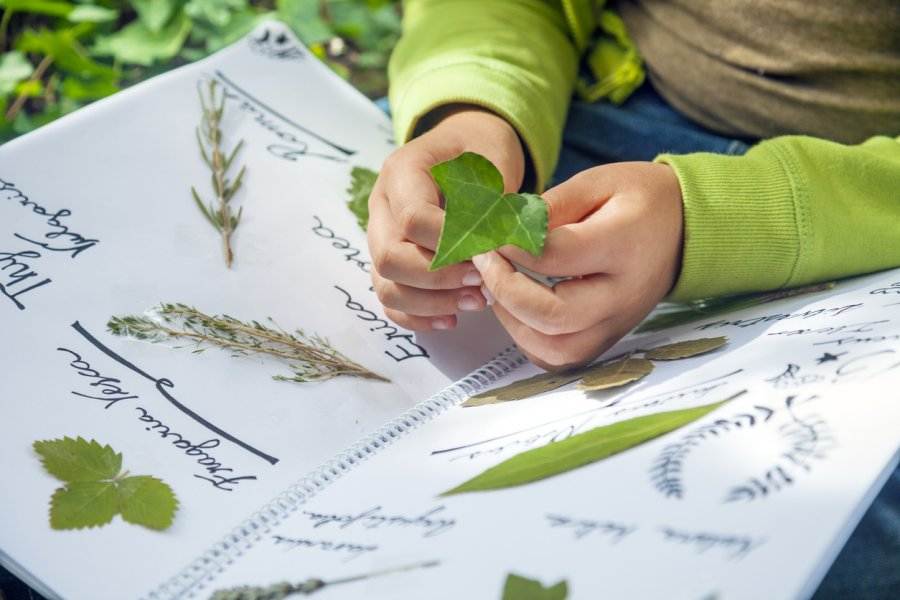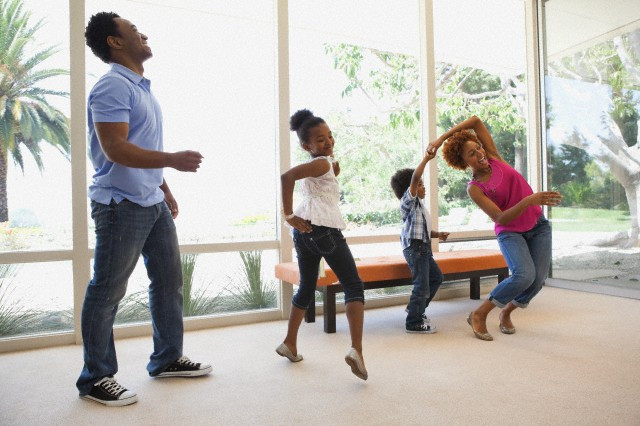7 benefits of reading for toddlers
Every moment spent with a book can enrich your child’s world while cultivating his or her emotional and intellectual well-being.
In this blog, you will find important facts about reading in French, and tips for reading together as a family at home.
Reading is much more than a simple moment of relaxation!
Family reading...
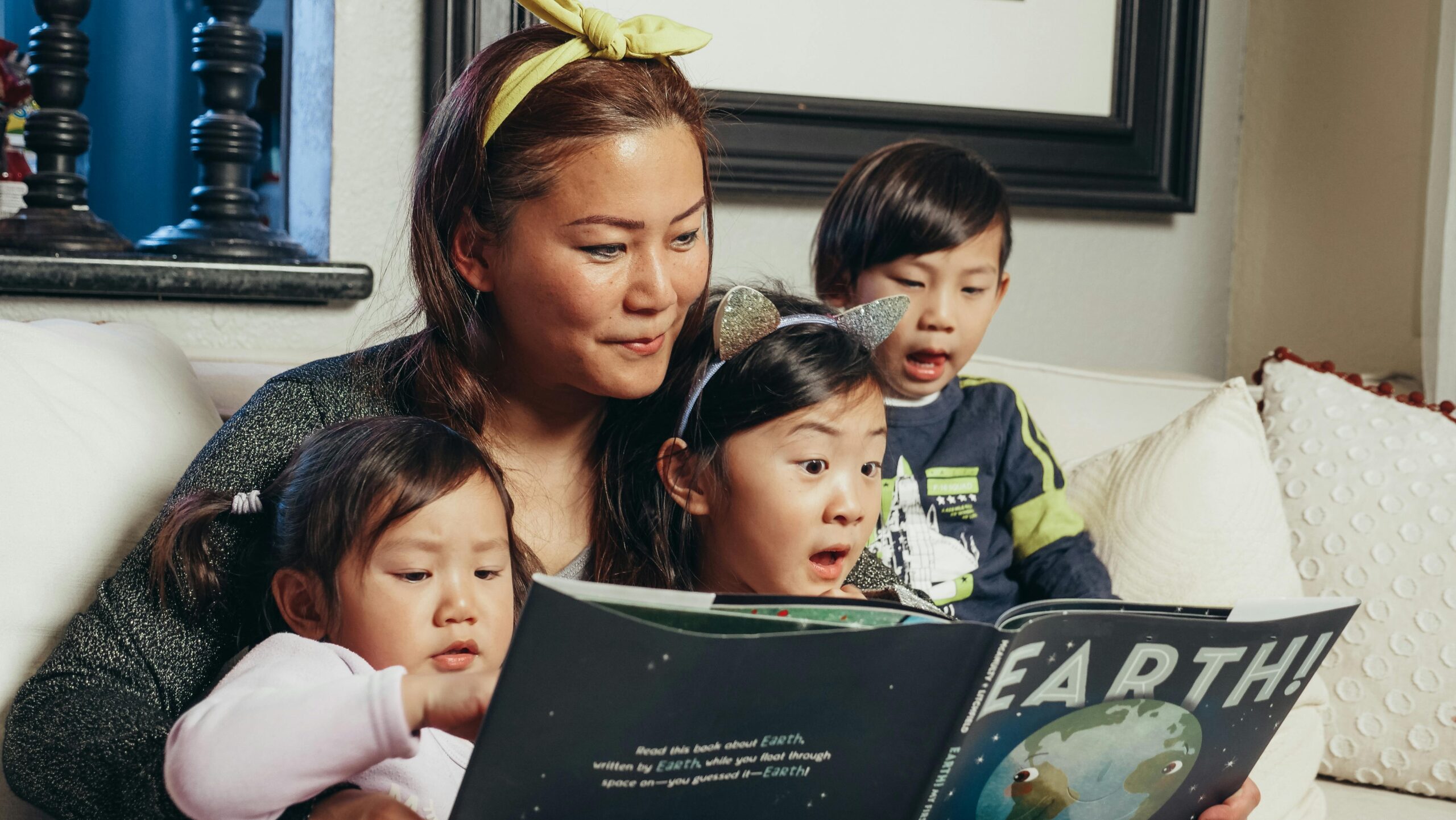
...is fun and entertaining
Reading is a unique opportunity for family play. While reading, parents are naturally drawn into the skin of the story’s characters, pretending, miming actions and imitating noises. During a reading moment, a child is surprised and amazed by the many new things he or she discovers, whether vocabulary words, objects, animals, gestures or emotions.
While reading, we can easily invite our child to react, to repeat words, to mime gestures, to imitate sounds, to adopt facial expressions that echo the plot of the book – in short, to play.

...encourages the development of language and imagination
Books provide a visual support for learning words, as well as putting them into context. They introduce children to the way French sentences are constructed. As they read and reread, their understanding of words, situations and stories deepens.
It is not surprising to see a child pointing to all sorts of elements in a book. They may ask for help in identifying things they do not know, “What’s that?” or show enthusiasm for something they like or recognize, “Look, a cat!” or “Look, it’s P’tit Loup!” Revisiting the same ideas in different contexts consolidates children’s learning.
Reading exposes them to new objects, new ideas and unfamiliar worlds. Encountering books opens the door to the imaginary world.
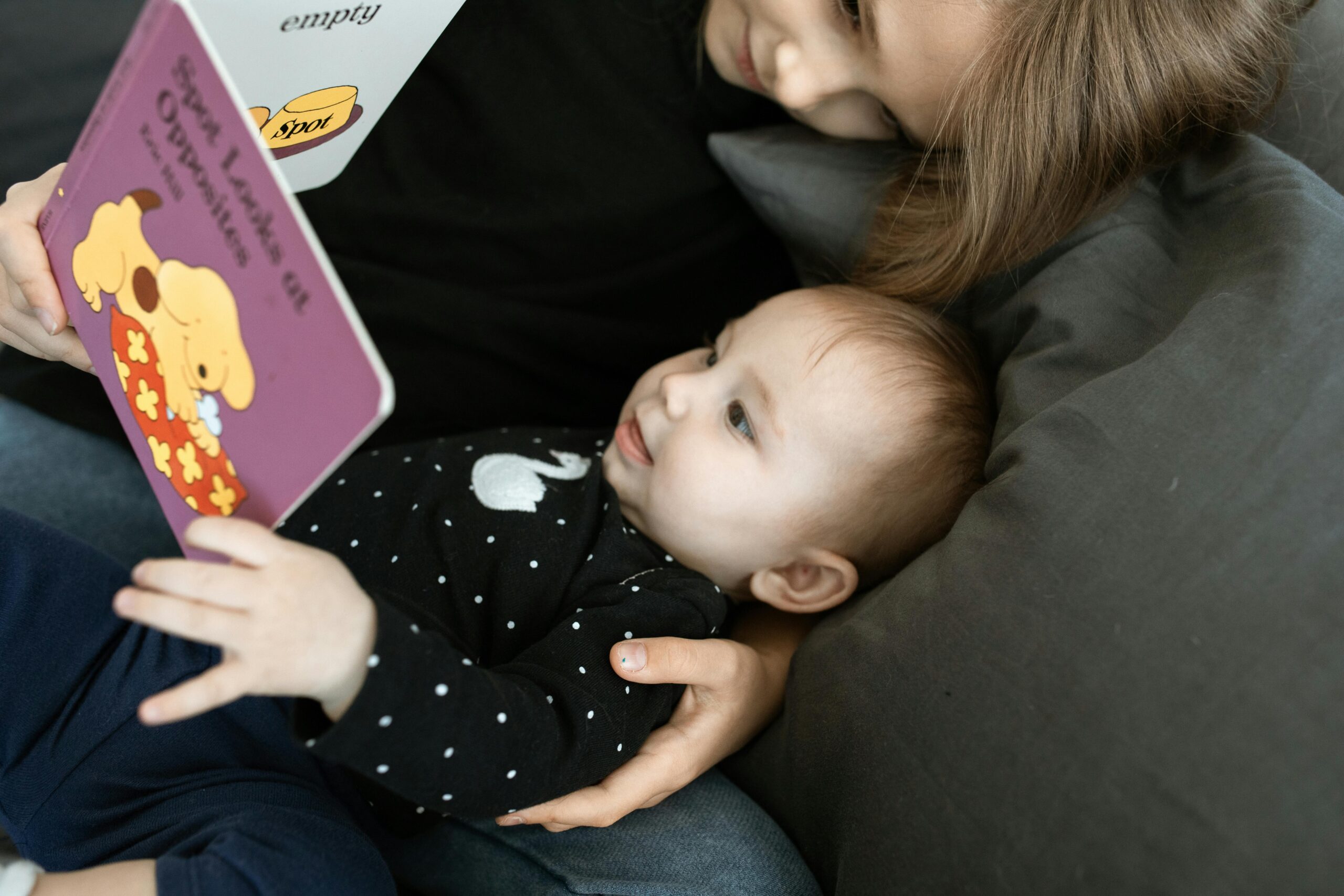
...fosters a sense of attachment
Reading is first and foremost a moment shared between child and parent. The context of this activity encourages interaction between parent and child. Looking at a book with you, being close to you, hearing your voice all contribute to creating a sense of comfort in your child.
You can introduce a baby to reading from an early age… while he is awake, of course! Babies under three months of age will be particularly attracted to black-and-white or high-contrast images. Visual acuity and contrast perception increase gradually throughout a child’s first year of life. In the first months of a child’s life, books can be a great tool for sensory stimulation.
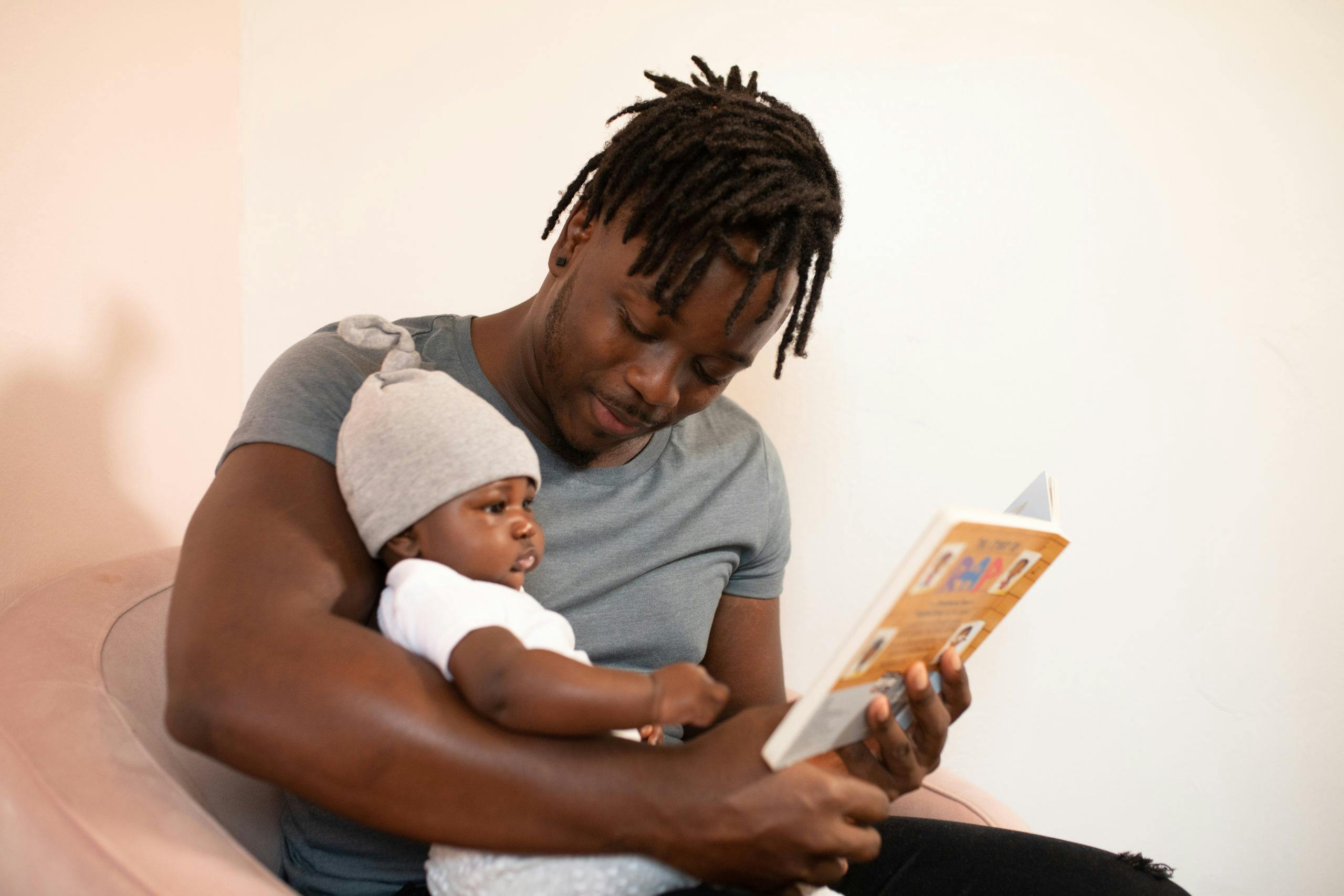
...promotes sensory awareness
Many books are specially designed to stimulate the senses, with textured elements, music, sounds, patterns, pictures and manipulatives. Because of their more limited visual capacity, infants are particularly attracted to black-and-white or high-contrast images. If your child is under a year old, he or she will be less able to perceive the smallest details in images.
All children’s books, without exception, have the capacity to awaken the senses, since they offer attractive illustrations to toddlers, as well as being easy to handle.

...promotes the development of motor skills
Books are a versatile toy from an early age. Even before they can read, children enjoy exploring this fascinating object: opening and closing books, looking at pictures, turning or tearing pages, carrying books, chewing, tapping, dropping and throwing.
Some books are specially designed for infants. Publishers offer a range of books made from sturdy materials that allow the child to explore them safely, such as fabric, felt, plastic (for waterproof books that can be taken into the bath) or all-cardboard books with rounded corners.

...promotes learning and emotion regulation
Reading fosters empathy. Books allow us to put ourselves in other people’s shoes, and expose us to their successes, but also to their difficulties and the emotions they go through. Through books, children discover emotions little by little, then learn to name them.
Reading also exposes children to familiar elements, such as words, animals and characters. Reconnecting with a familiar character or element, or re-reading a book, brings a sense of calm and comfort to a child, a bit like listening to a song over and over again, even if you already know it.
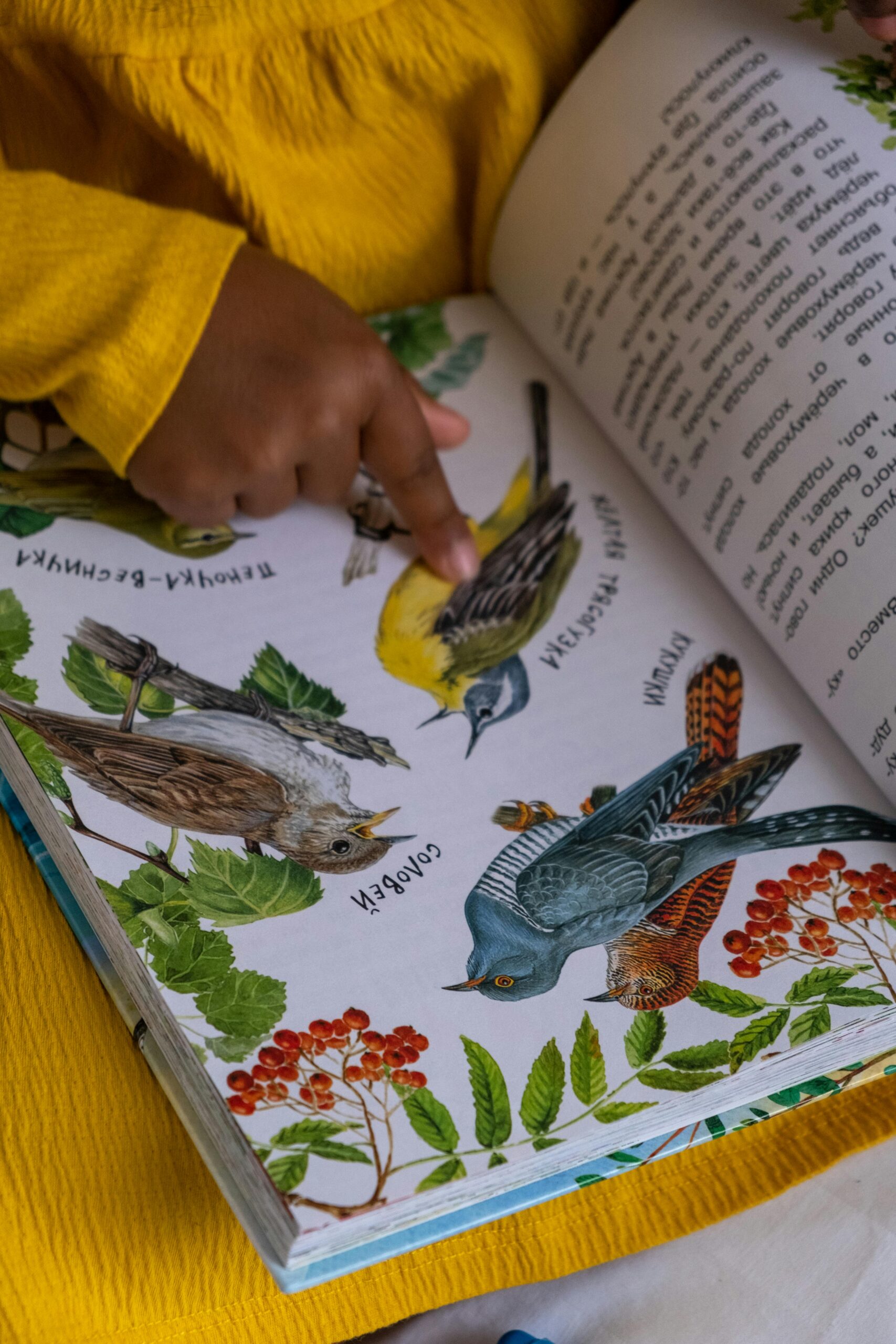
...prepares children to read independently
Even before they can read, children exposed to books become familiar with the codes of reading: they learn to turn pages, they gradually understand that a book is read from left to right, and they learn to distinguish words from pictures.
They also learn that words are made up of letters grouped together, and that these words can form sentences and stories.



